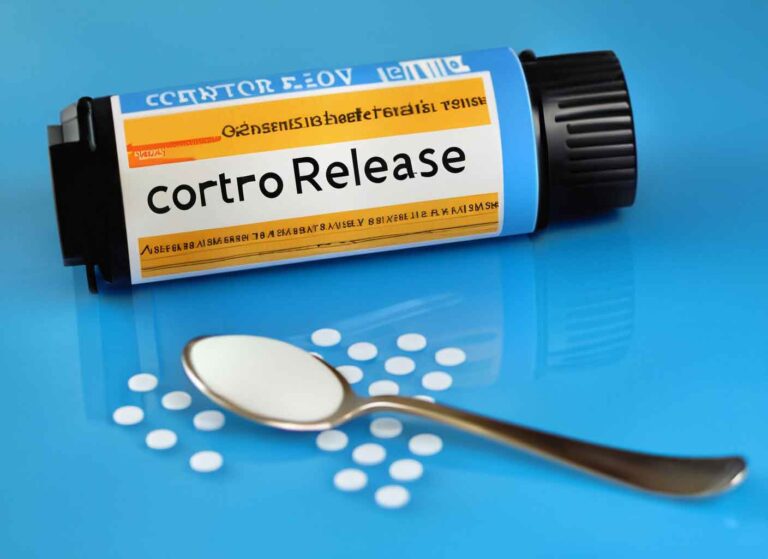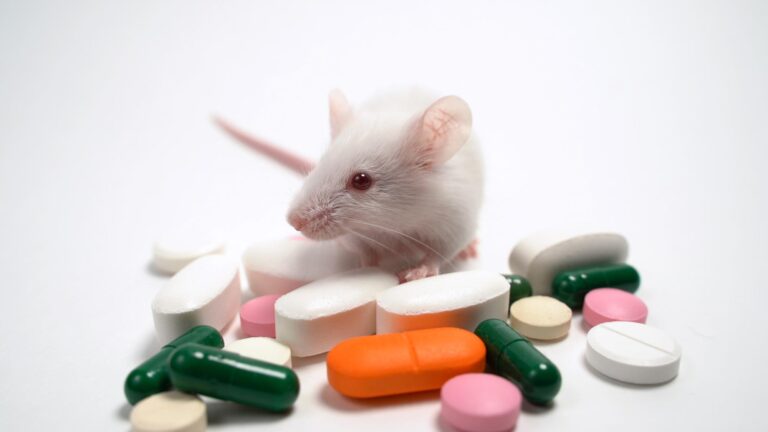
When making medicines, figuring out how to turn a new drug into something people can take is a really big deal. This is where formulation development comes in. It’s like the magic step that makes sure the medicine is just right for patients. Let’s take a closer look at why this process is so important.
Understanding the Meaning of Drug Formulation
When scientists discover a new drug, it’s not immediately ready for use by patients. This scenario is akin to possessing a remarkable ingredient without knowing how to effectively utilize it.
Drug formulation addresses this challenge by determining the optimal method of delivering the active pharmaceutical ingredient (API). It involves blending the active ingredient with inactive components, known as excipients, to create the final medicine. These excipients contribute to the stability and suitability of the medicine for patients.
Formulation development goes beyond mere mixing; it also involves deciding the appropriate dosage form, whether it be a pill, liquid, or another form. Importantly, formulation is an iterative process, much like refining a recipe to suit different contexts. Multiple formulations may be necessary for clinical testing, varying doses, and different administration routes.
Process of Formulation Development
Formulation development commences with drug preformulation studies, which involve closely examining the medicine’s chemical and physical behavior.
Why is this essential?
It’s crucial to determine the optimal combination of ingredients to ensure the medicine’s stability under various environmental conditions, such as extreme temperatures.
Each ingredient in the medicine plays a pivotal role. Preformulation studies act as guardians of the medicine’s potency, ensuring it remains robust and effective. By comprehending the medicine’s behavior, scientists can formulate a blend of ingredients that maintains its strength, regardless of external challenges.
Thus, before manufacturing the medicine, scientists meticulously analyze its characteristics to identify the optimal ingredient mix that ensures its efficacy, even under adverse conditions. Preformulation studies mark the initial and vital steps in the formulation process, laying the groundwork for subsequent endeavors where the true magic of crafting a potent medicine formula unfolds.
Different Types of Drug Formulations
In the world of medications, there isn’t a one-size-fits-all approach. Medicines come in various forms – pills, liquids, injections – and each demands a specific formulation. Let’s see the different formulas as per the unique characteristics of each type:
Tablet Formulas
Consider tablet formulas as the reliable go-to for everyday use. They consist of a portion of the active ingredient blended with inactive components.
Additionally, there are specific elements that aid in the smooth dissolution of the medicine in the digestive system. It’s similar to crafting a well-balanced mix for a dependable daily companion.
Capsule Formulas
Capsule formulas operate like discreet carriers for medicines. These tiny cases dissolve in the stomach, revealing the essential ingredient within. The process is akin to unwrapping a surprise gift, ensuring the body receives the full dose once the capsule opens.
Capsules offer a mysterious and efficient method for certain medicines to make their impact felt.
Liquid Formulas
Liquid formulas are characterized by their rapid manufacturing process and high absorbability in the body.
They offer swift and efficient administration, making them akin to the speedsters among medicines. In situations requiring urgent treatment, liquid formulas are often the preferred choice due to their ability to provide rapid and effective results.
Sustained Release Formulas
Some medicines prefer a gradual and sustained effect. Enter sustained release formulas – the steady performers.
These formulas release the medicine slowly over time, ensuring a prolonged presence in the system. This measured approach is ideal for situations where a patient requires a consistent, enduring impact.
Injection Formulas
Injectable medicines take on the role of VIP guests, enjoying direct access. These formulas can exist in liquid form or undergo freeze-drying, giving them a distinctive quality.
This process, akin to turning them into ice, adds a touch of sophistication. It is a more elaborate method suitable for medicines requiring a precise delivery mechanism.
Skin Formulas
For skin-related concerns, medicines adopt a different strategy. Skin formulas manifest in various forms – creams, ointments, gels, powders, and pastes. This diverse array is comparable to a tailored skincare routine. Application is direct to the skin, offering a focused approach to specific concerns.
In the spectrum of medicinal options, each type possesses unique characteristics. Formulating them is similar to tailoring the ideal solution for diverse needs, ensuring not only an appealing presentation but also the efficient fulfillment of their intended purpose.
Why Drug Formulation Development for Clinical Trials is a Big Deal?
Within the operations of Contract Development and Manufacturing Organizations (CDMOs), medications undergo systematic testing, known as clinical trials, which unfold through multiple phases.
During the preliminary stages of clinical trials, researchers employ basic formulations as practice sessions rather than real-world applications. In this phase, capsules are manually filled with the active ingredient and necessary additives under meticulous supervision. Despite their temporary nature, these formulations serve as crucial steps for refinement and improvement.
As clinical trials progress towards advanced phases, formulations become more complex and robust. By the time they reach Phase III trials, formulations must demonstrate steadfast stability under various environmental conditions, including temperature fluctuations and exposure to light.
Ensuring the medicine’s consistency and potency throughout these trials remains a critical objective for ensuring its efficacy and eventual market approval.
Challenges in the Formulation Process
Embarking on the journey of crafting medicines brings forth noteworthy challenges that require adept navigation. Let’s look at some key obstacles faced by formulation developers:
1. Solubility Struggles:
Imagine the task of blending oil and water – a resistance to harmonious union. Similarly, certain medicines pose challenges in achieving a seamless blend. Formulation developers must find solutions to ensure these ingredients cooperate effectively, crafting a successful medicine formula.
2. Stability Standoff:
In the realm of medicine, the undesirable scenario is akin to having a superhero lose strength over time. Stability is paramount – akin to having a steadfast ally that remains reliable throughout.
Formulation developers tirelessly work to uphold the potency and dependability of medicines from production to patient use.
3. Dose Dilemmas:
Determining the precise amount of medicine for an individual requires achieving an optimal balance, ensuring it is neither excessive nor insufficient.
Accuracy is pivotal in establishing the right dose, offering therapeutic benefits without unintended side effects. Formulation developers aim for this delicate equilibrium, prioritizing patient well-being.
4. Ingredient Insufficiency:
In formulation development, the absence of a crucial ingredient can compromise the effectiveness. This shortage poses challenges akin to starting a puzzle without all its pieces.
Formulation developers strive to ensure an adequate supply of essential components, ensuring the completeness and efficacy of the medicine.
It’s crucial to acknowledge that each medicine presents unique complexities, requiring tailored solutions to address formulation challenges.
During formulation development, overcoming these obstacles highlights the dedication and resourcefulness of scientists committed to providing effective and reliable medicines to patients in need.
Why Is Drug Formulation Development Considered Important?
The discovery of a new medicine is a significant milestone, akin to finding treasure. However, the transformation of this discovery into a useful product is where formulation development plays a pivotal role.
Beyond the initial discovery, the success of a medicine heavily relies on its formulation. If the medicine lacks stability, it cannot progress to market.
During formulation, scientists seek practical solutions that work both in the lab and in real-world applications. They aim to ensure the medicine can be manufactured in large quantities to meet the needs of all patients. If the formulation is overly complex, it can hinder mass production, impacting cost and accessibility.
Formulation development serves as an essential aspect of the pharmaceutical world, ensuring that medicines emerge as robust and reliable solutions ready to aid those in need.
Therefore, formulation development rightfully takes the spotlight in the journey of creating impactful medicines.
Final Words
Formulation development holds immense importance in the field of medicine, ensuring medications are effective, safe, and accessible to patients.
Pharmaceutical experts utilize careful formulation to optimize drug delivery methods, enhance the stability of active ingredients, and minimize potential side effects. This meticulous process guarantees that patients receive the appropriate treatment in a convenient form, facilitating easier administration and adherence to prescribed medications.
By bridging the gap between scientific research and practical healthcare, formulation development significantly enhances the quality of life for numerous individuals. Its significance cannot be overstated, as it continues to propel innovation and advancements in medicine.







